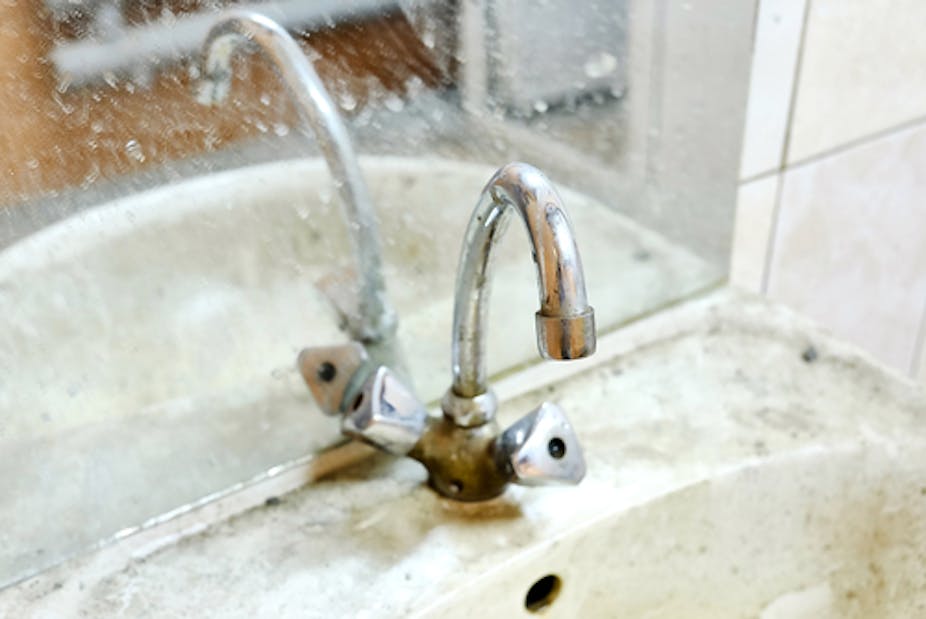For my fourth-grade science fair project, I tested different soaps to see which ones were the most effective at keeping my hands clean.
Now, nearly 20 years later as a microbiology doctoral candidate, I can’t help but think, “Ugh, the fourth-grade me was such an amateur scientist!”
My experiment lacked obvious control groups and ultimately asked the wrong question. Instead of asking which brand of soap was the most “effective” and classifying all bacteria as germs, I should have been investigating how to prevent the growth and spread of specific disease-causing bacteria, or pathogens.
This question is difficult to answer. You can’t tell by eye which bacteria growing within a petri dish are the “good guys” versus ones that cause disease, and some pathogenic microbes, like viruses, can’t be detected within agar petri dishes.
Nevertheless, with the upcoming holiday travels, asking how to prevent the spread of disease-causing pathogens isn’t just for aspiring microbiologists but a great question for everyone.
Do we really stand a chance of keeping our hands clean from germs?
Two-fisted approach
There are two main strategies.
The first is to decrease the overall biomass of microbes – that is, decrease the amount of bacteria, viruses and other types of microorganisms. We do this by lathering with soap and rinsing with water. Soap’s chemistry helps remove microorganisms from our hands by accentuating the slippery properties of our own skin.
Studies have shown that effectively washing with soap and watersignificantly reduces the bacterial load of diarrhea-causing bacteria.

The second strategy is to kill the bacteria. We do this by using products with an antibacterial agent such as alcohols, chlorine, peroxides, chlorhexidine or triclosan.
Some academic work has shown that antibacterial soaps are more effective at reducing certain bacteria on soiled hands than soaps without them.
However, there’s a problem. Some bacterial cells on our hands may have genes that enable them to be resistant to a given antibacterial agent. This means that after the antibacterial agent kills some bacteria, the resistant strains remaining on the hands can flourish.
Further, the genes that allowed the bacteria to be resistant could pass along to other bacteria, causing more resistant strains. Together, the “take-over” of resistant strains would render the use of the antibacterial agent essentially ineffective.
Also, the long-term use of some antibacterial products may harm your health.
For example, animal studies investigating the antibacterial agent triclosan, which used to be in soaps, toothpastes and deodorant, has been shown to alter the way hormones work in the body. The Food and Drug Administration has prohibited the use of over-the-counter antiseptic wash products containing triclosan and many other antibacterial active ingredients.
With this in mind, you may want to stick with plain old soap and water.
Best practices

To clean our hands, the Centers for Disease Control and Prevention recommends that we:
- wet hands with clean water.
- apply soap and lather/scrub every nook and cranny of your hands for 20-30 seconds (about the time to sing “Happy Birthday” twice).
- rinse well with clean running water.
- dry hands with a clean paper towel or air-dry.
I was shocked to read a study that indicated that 93.2 percent of 2,800 survey respondents did not wash their hands after coughing or sneezing. Also, one study showed that across a college-town environment with observations of 3,749 people, the average hand-washing time was approximately six seconds!
If soap and water are not unavailable, the CDC recommends using an alcohol-based hand sanitizer that contains at least 60 percent ethanol. Alcohols have a broad-spectrum of antimicrobial activity and are less selective for resistance compared to other antibacterial chemicals.
However, alcohol-based hand sanitizers may not work on all classes of germs.
Not all microbes are germs
The presence of some bacteria isn’t necessarily a bad thing.
In the lab where I am pursuing my dissertation, our focus is understanding the complex interactions between animal hosts and bacteria. I would be remiss to not mention that the bacteria that live on or within us are essential for us as hosts, especially considering their role in protecting us from pathogens.
We live in a microbial world: Trillions of different bacteria colonize our skin, gut, and orifices. Collectively with yeast and viruses, they are called our microbiota. A plethora of exciting research suggests that the associations of animal hosts with their microbiota are not rare occurrences but in fact are fundamentally important for the host’s biology.
Our microbiota can protect us from germs by training our immune system and by colonization resistance): the characteristic of the intestinal microbiota to block colonization of pathogens.
Although more research needs to be done to understand the intricate interactions between microbial communities with host cells, consistent work illustrates that a diverse population of microbes and a balance of this community is important for our health.
Poor diet, lack of sleep, stress and antibiotic use can negatively perturb our microbiota communities, which in turn can put us at risk for diseases . In fact, it is becoming clear that our microbiota are active participants in preventing and sometimes driving disease, depending on the state of the microbial communities .
So what is the take-home message?
There is no doubt that washing our hands with liquid soap and water is effective in reducing the spread of infectious microorganisms, including those that are resistant to antimicrobial agents.
When you don’t have the opportunity to wash your hands after touching questionable surfaces, use an alcohol-based hand sanitizer. Limit the touching of your hands to your mouth, nose and eyes.
Further, maintain a healthy microbiota by limiting stress, getting enough sleep and “fertilizing” your gut microbes with a diversity of plant-based foods. It’s not only a small world, but a dirty one as well.


